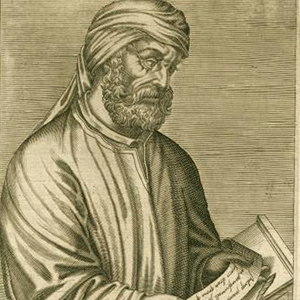Writing from the city of Carthage (near modern day Tunis) at the beginning of the third century, the church father Tertullian presented a different view than that of St. Augustine. He did not deny that prayer produced positive changes in the person who prays, yet he believed that prayer could also change God. He viewed prayer as a powerful tool of persuasion, that could detain God’s wrath and move Him to mercy. Tertullian believed that prayer could alter the course of history. He was even so bold to say, “It is prayer alone that conquers God.”
In Tertullian’s view, prayer was necessary because sin had created a deep rift between God and Creation. Before sin occurred, women, men and all of nature existed in perfect harmony with the desires of the Creator. There was no need to pray for the doing of God’s will, because it was carried out without opposition. But once people sinned, prayer became necessary as a means of bringing about the fulfillment of God’s purposes. In Against Marcion 2.13 he writes “But yet, when evil afterwards broke out, and the goodness of God began now to have an adversary to contend against, God’s justice also acquired another function, even that of directing His goodness according to men’s application for it.” (ANF 3, 307) This is to say that once the original harmony between God and Creation was disrupted by sin and evil, it became necessary for women and men to ask for God's goodness to be revealed on earth. Men and women had shown how much they wanted evil. Now they had to show God, through prayer, how much they wanted His mercy.
Tertullian describes prayer as an act that moves God to compassion, and persuades Him to shower good upon an undeserving humanity. Prayer is the obligation of Christians because it is the instrument by which he accomplishes his purposes in the world:
It is prayer alone that conquers God. Christ has determined that it should do no harm. He has imbued it with every power for doing good. And so it has no other function except to save from the path of death those who have fallen away, to build up the weak, to heal the sick, to cast out demons, to open prison doors, and to break the chains that bind the innocent. In the same way it flushes out sins, repels temptations, snuffs out persecutions, comforts the faint, delights the merciful, guards travelers, calms the waves, confounds thieves, catches those falling, and affirms those standing. Prayer is the wall of faith, the arms and weapons we use against the foe who stalks us from all sides. So let us never walk unarmed. (ANF 3, 691 [updated])
Prayer changes things. It holds back God’s wrath against evil, and redirects the course of history. In his work the Apology he explains to his pagan contemporaries that Christian prayer has brought about a fundamental change in God's posture towards the world, something their prayers never did:
If we compare all the disasters of former times, we see that they come less frequently now since God gave Christians to the world. For when men began to pray for God’s mercy, the evil of this world became restrained. When the summer clouds give no rain, and everyone feels the anxiety, you (pagans) party by day, and remain eager as ever for your banquets, baths, bars and brothels . . . While we - weary from fasting, and depriving ourselves of every desire, denied of life’s pleasures, rolling in sackcloth and ashes – assail heaven with our desparate pleas, and touch God himself. (ANF 3, 48 [updated])
Thus, for Tertullian, prayer is not simply for the benefit of the believer. Without prayer, the display of God's goodness will be greatly hindered. Prayer is necessary to bring about God’s will on the earth.
Many people, however, are uncomfortable with the idea that anything is neccessary for God if He is, in fact, all powerful. In the next post, we’ll explore Tertullian’s concept of God’s sovereignty.

